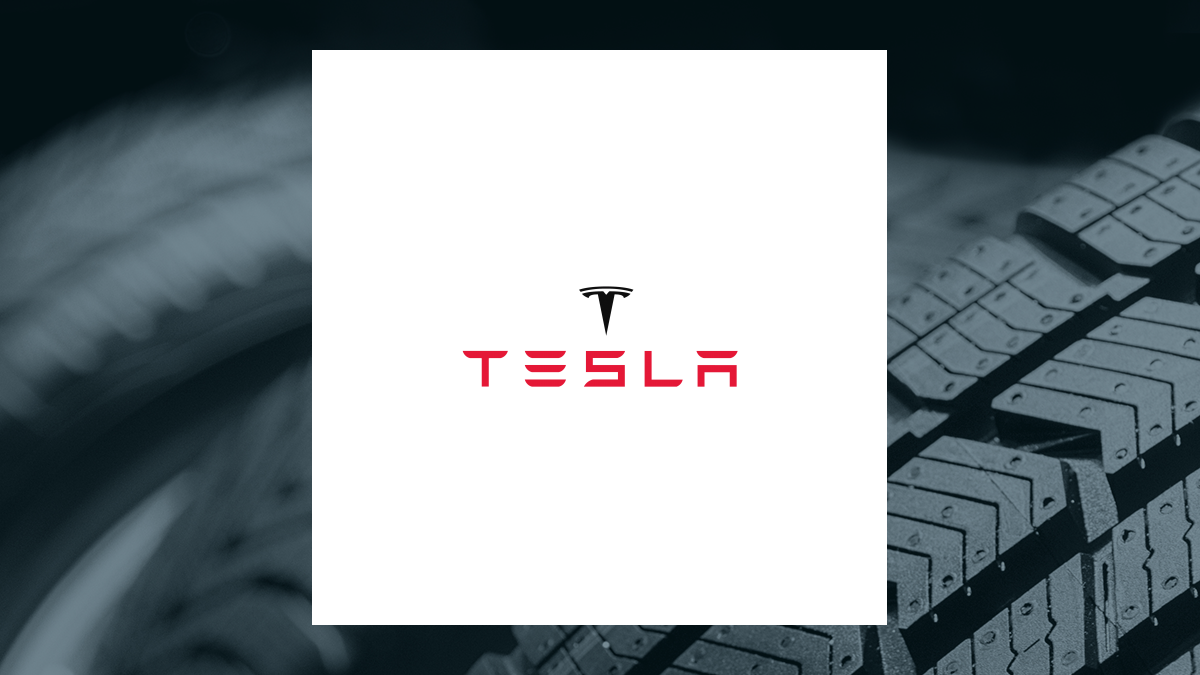Tesla, Apple, and Microsoft are the three Retail stocks to watch today, according to MarketBeat’s stock screener tool. Retail stocks are stocks of companies that primarily sell goods and services directly to consumers through physical stores, online platforms, or a combination of both. These stocks are influenced by consumer spending trends, economic conditions, and industry competition, making them subject to fluctuations based on consumer sentiment and market performance. These companies had the highest dollar trading volume of any Retail stocks within the last several days.
Tesla (TSLA)
Tesla, Inc. designs, develops, manufactures, leases, and sells electric vehicles, and energy generation and storage systems in the United States, China, and internationally. The company operates in two segments, Automotive, and Energy Generation and Storage. The Automotive segment offers electric vehicles, as well as sells automotive regulatory credits; and non-warranty after-sales vehicle, used vehicles, body shop and parts, supercharging, retail merchandise, and vehicle insurance services.
Shares of TSLA stock traded up $4.32 during mid-day trading on Friday, reaching $404.60. The stock had a trading volume of 83,239,854 shares, compared to its average volume of 66,449,784. The firm has a market cap of $1.30 trillion, a PE ratio of 198.33, a P/E/G ratio of 8.08 and a beta of 2.30. The company has a quick ratio of 1.37, a current ratio of 1.84 and a debt-to-equity ratio of 0.08. Tesla has a one year low of $138.80 and a one year high of $488.54. The firm’s 50 day simple moving average is $404.22 and its 200 day simple moving average is $299.34.
Read Our Latest Research Report on TSLA
Apple (AAPL)
Apple Inc. designs, manufactures, and markets smartphones, personal computers, tablets, wearables, and accessories worldwide. The company offers iPhone, a line of smartphones; Mac, a line of personal computers; iPad, a line of multi-purpose tablets; and wearables, home, and accessories comprising AirPods, Apple TV, Apple Watch, Beats products, and HomePod.
AAPL traded down $1.59 during trading on Friday, reaching $236.00. 100,927,959 shares of the company’s stock were exchanged, compared to its average volume of 52,177,912. The company has a market capitalization of $3.55 trillion, a P/E ratio of 38.82, a PEG ratio of 2.39 and a beta of 1.20. The company has a quick ratio of 0.83, a current ratio of 0.87 and a debt-to-equity ratio of 1.51. The business has a 50 day moving average price of $241.68 and a 200 day moving average price of $230.84. Apple has a fifty-two week low of $164.07 and a fifty-two week high of $260.10.
Read Our Latest Research Report on AAPL
Microsoft (MSFT)
Microsoft Corporation develops and supports software, services, devices and solutions worldwide. The Productivity and Business Processes segment offers office, exchange, SharePoint, Microsoft Teams, office 365 Security and Compliance, Microsoft viva, and Microsoft 365 copilot; and office consumer services, such as Microsoft 365 consumer subscriptions, Office licensed on-premises, and other office services.
MSFT traded up $0.07 during midday trading on Friday, reaching $415.06. 34,151,765 shares of the company’s stock were exchanged, compared to its average volume of 18,687,650. The business has a 50-day simple moving average of $432.53 and a two-hundred day simple moving average of $424.61. The company has a quick ratio of 1.29, a current ratio of 1.30 and a debt-to-equity ratio of 0.15. The firm has a market capitalization of $3.09 trillion, a price-to-earnings ratio of 33.42, a price-to-earnings-growth ratio of 2.38 and a beta of 0.90. Microsoft has a one year low of $385.58 and a one year high of $468.35.
Read Our Latest Research Report on MSFT
Read More
- MarketBeat’s Top Five Stocks to Own in February 2025
- 3 Stocks to Gain From Trump’s Return-to-Office Mandate
- Crane Stock Soars, But the Best Could Be Yet to Come: Here’s Why
- ServiceNow Stock Slips, But AI Expansion Signals Long-Term Gains
- Microsoft and Meta’s AI Investment Plans Are Full Steam Ahead
- Beyond Self-Driving Cars: Factory Automation Takes Center Stage

